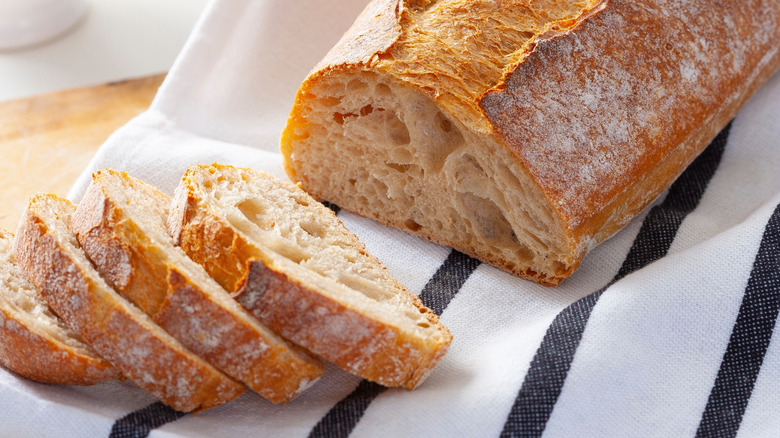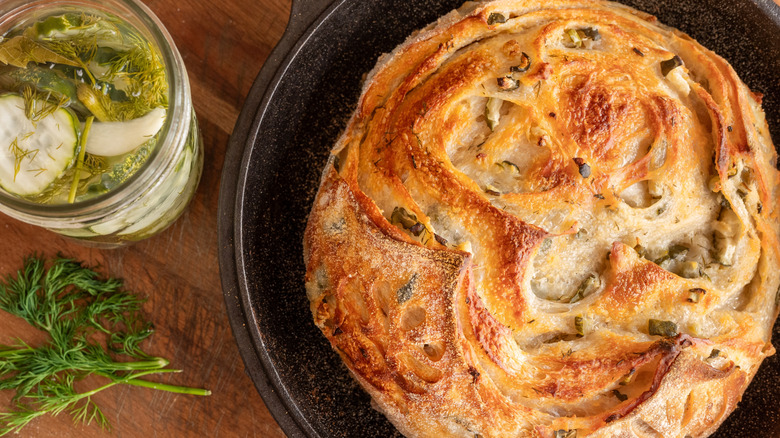How To Keep Sourdough Bread From Going Bad Quickly
From sourcing the best flour and perfectly proofing the dough to scoring the loaf for a gorgeous rise, there are a number of components that go into creating a mouthwatering loaf of sourdough. Once you've put in all of that work to craft your beautiful bread, naturally, you'll want to keep it around for as long as possible. To find out how to make that happen, Food Republic spoke with Tatiana Kamakura, a sourdough baker, recipe developer, and the creator behind Milk and Pop.
"To maintain the crust, store sourdough in a breadbox, paper bag, linen bag, or wrapped in a clean towel," Kamakura said. "Always store it cut-side down to protect the crumb. If you want it to last longer, freezing is your best bet. Just slice the loaf, place the slices in a freezer-safe bag, and reheat when ready."
Once your sourdough is safe and sound in its storage container or towel, you can keep it at room temperature. Avoid refrigerating it since that's one of the fastest ways to wind up with a dried-out loaf.
Not all sourdoughs are the same when it comes to storage
According to Tatiana Kamakura, the specific storage technique you choose to use should be dictated by the type of sourdough you've made. "A classic artisan sourdough loaf (one made with flour, water, salt, and wild yeast) is more resilient thanks to its natural acidity," she said. You can store these in the way she described above, but she emphasized that the bread should be used in one to three days, tops. "If you won't finish the loaf in that time, freezing is the best option to preserve both crust and crumb."
If you've opted to make an enriched sourdough, however, you'll have a little less time to enjoy fresh slices and combat spoilage. "Enriched sourdough breads (made with butter, eggs, milk, or a high amount of sugar) behave differently," Kamakura said. "While they stay soft longer due to the added fats and moisture, they also tend to mold faster if stored in tightly sealed plastic or in warm, humid environments. These loaves are best stored in a breathable bag if consumed within a couple of days." If you're unable to make your way through all of the sourdough in that short time, be sure to pop it in the freezer.
Finally, if you've included add-ins like olives or cheese, Kamakura suggests consuming or freezing the bread within a day or two. Like the enriched sourdough, loaves with added ingredients are prone to higher levels of moisture and are therefore more likely to quickly spoil. If you do freeze it, don't let your bread thaw on the counter. Instead, pop a slice or two (and yes, it should be sliced before freezing for the best results) into the oven at 325 degrees Fahrenheit for around five minutes.


